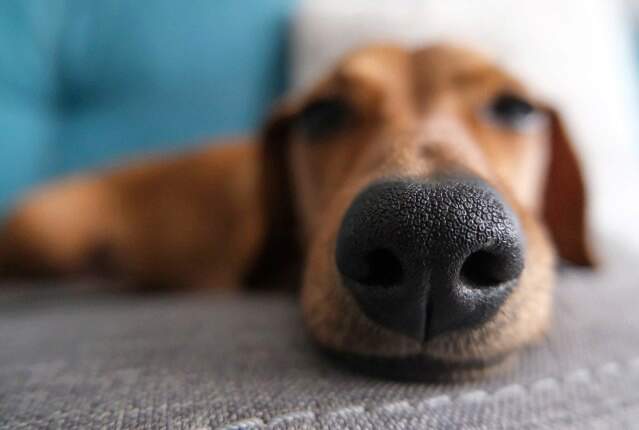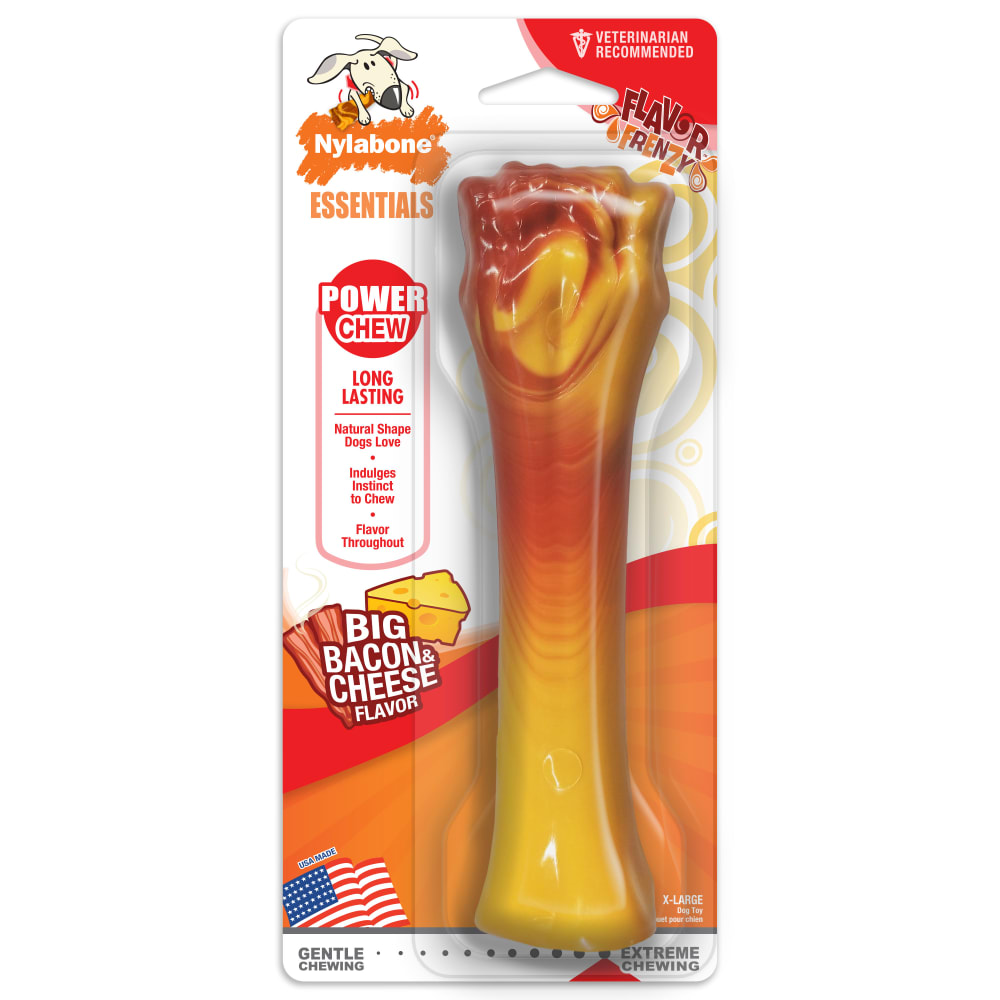Why Do Dogs Sneeze?
Your dog’s sniffing the grass on a spring day and…they sneeze. You’re engaged in an exciting game of fetch with your dog when suddenly…they sneeze. You’ve just returned home from work and your dog greets you with…a sneeze?
Sneezing is a completely normal, involuntary act, usually pertaining to pollen or the climate. But there are various other reasons for why dogs sneeze that may surprise you!
From seasonal allergies to a case of the zoomies, learn about the many reasons why dogs sneeze.
Reason #1: Common Irritants
A dog’s nose is up to 100,000 times stronger than a human’s nose! With as many as 300 million scent receptors compared to our 5 million, our furry friends’ noses are extra sensitive when it comes to allergens and irritants, according to PetMD. In response, dust, dirt, and pollen in the air may cause a dog to sneeze more than a human.
You may even notice your dog reverse sneezing, which refers to those startling, snort-like sneezing sounds your dog occasionally makes. In those moments, your dog is suddenly very still and hunched over, inhaling dramatically from the nose. Reverse sneezing in dogs is most common in smaller dog breeds, and nothing to worry about! It is simply a way to clear their airway.
Aside from microscopic particles, larger foreign objects such as a blade of grass or a bug could also irritate your dog’s nasal passage and make your dog sneeze a lot.
Reason #2: Seasonal Allergies
Seasonal allergies could also affect dogs, leading to behaviors such as excessive licking and scratching, chewing on their paws, and watery eyes. Symptoms from your dog’s seasonal allergies will usually only last about two to four weeks, but if they don’t go away and your dog keeps sneezing, you should consult your veterinarian.

Reason #3: Kennel Cough
If your dog keeps sneezing and it is accompanied by a loud, strong cough, they may have come down with kennel cough. Kennel cough is a highly contagious respiratory disease in dogs that can be contracted anywhere your dog encounters other dogs such as dog parks, grooming appointments, and doggy daycare sessions.
In addition to the telltale cough—which sometimes comes with a “honking” noise—other symptoms include loss of appetite, low fever, and a runny nose. If you suspect that your dog has kennel cough, reach out to your veterinarian as soon as possible.
Reason #4: Excitement
Do you find that your dog often sneezes during playtime, when they see their leash, or when you open the treat drawer? Don’t worry; your dog isn’t allergic to fun—they are just communicating with you! Because dogs can’t talk (unfortunately), they rely on body language to communicate. So, to express excitement, dogs sneeze when playing in the same way their tails wag to show happiness!
However, if your dog is sneezing a lot, it could also be a sign they need to slow down or take a break from any intense play, exercise, or stimulation, according to the American Kennel Club. Don’t be alarmed; they just need a quick breather and will be ready for some more fun before you know it!

Reason #5: Communication
On the other hand, if a dog sneezes when playing with another dog or even a human, it can be a way to tell the other that they mean well and that they’re simply being playful.
If your dog is looking at you and sneezes, chances are that they want something, whether it is to go on a walk, have something to eat, or get a belly rub. Alternatively, they could be looking for an interactive play session, whether it be a round of fetch or tug-of-war with their play toys.
Reason #6: Dental Issues
While any irregular bouts of sneezing are nothing to be concerned about, there are sometimes more serious implications for why dogs sneeze.
Oronasal fistula, for instance, is an oral condition where there’s an opening between the oral and nasal cavities. Often tied to periodontal disease in dogs, it occurs when the bony tissue on dogs’ top teeth breaks down to allow water, saliva, plaque bacteria, and small food particles to enter the nasal cavity, according to Embrace Pet Insurance. Symptoms include perpetual sneezing, blood-tinged saliva or nasal discharge, and a constant runny nose. If you notice any of these symptoms, contact your veterinarian.
Taking care of your dog’s teeth is essential to their overall health because oral bacteria can affect other organs such as the heart, liver, and kidneys, according to VCA Animal Hospitals.
To help prevent dental problems, learn how to care for your dog’s teeth.
ACHOO!
There are surely times when a sneeze is, well...nothing more than a sneeze. Though, to take great care of your fur pal, pay attention to the “achoo”! It could be anything from a sign to visit the veterinarian to an invitation to play!
Dogs aren't the only furry friends whose noses get stuffed up! Find out why cats sneeze and what it might reveal about their health.
Resources:
American Kennel Club
PetMD
FOLLOW US!






